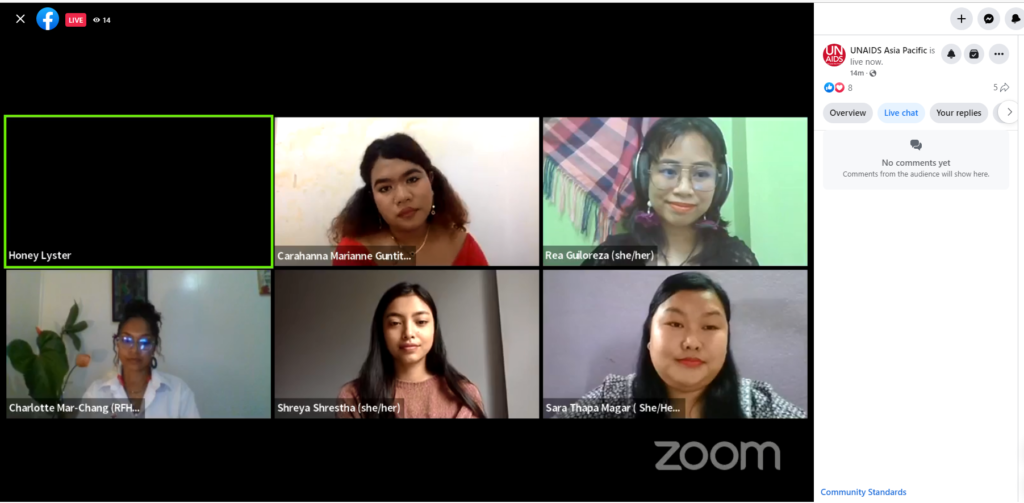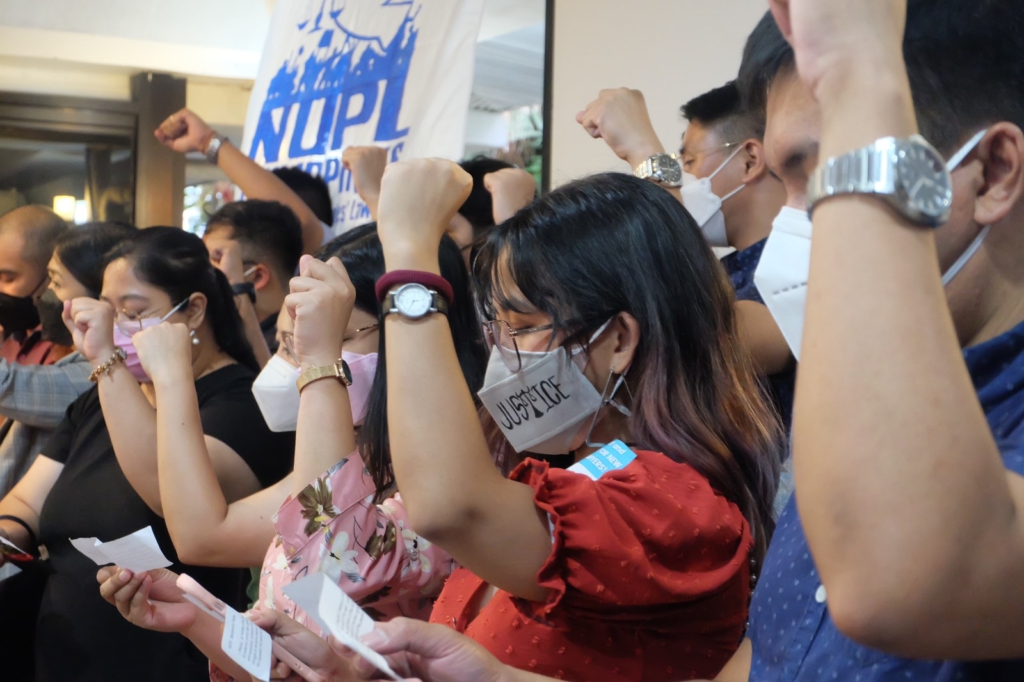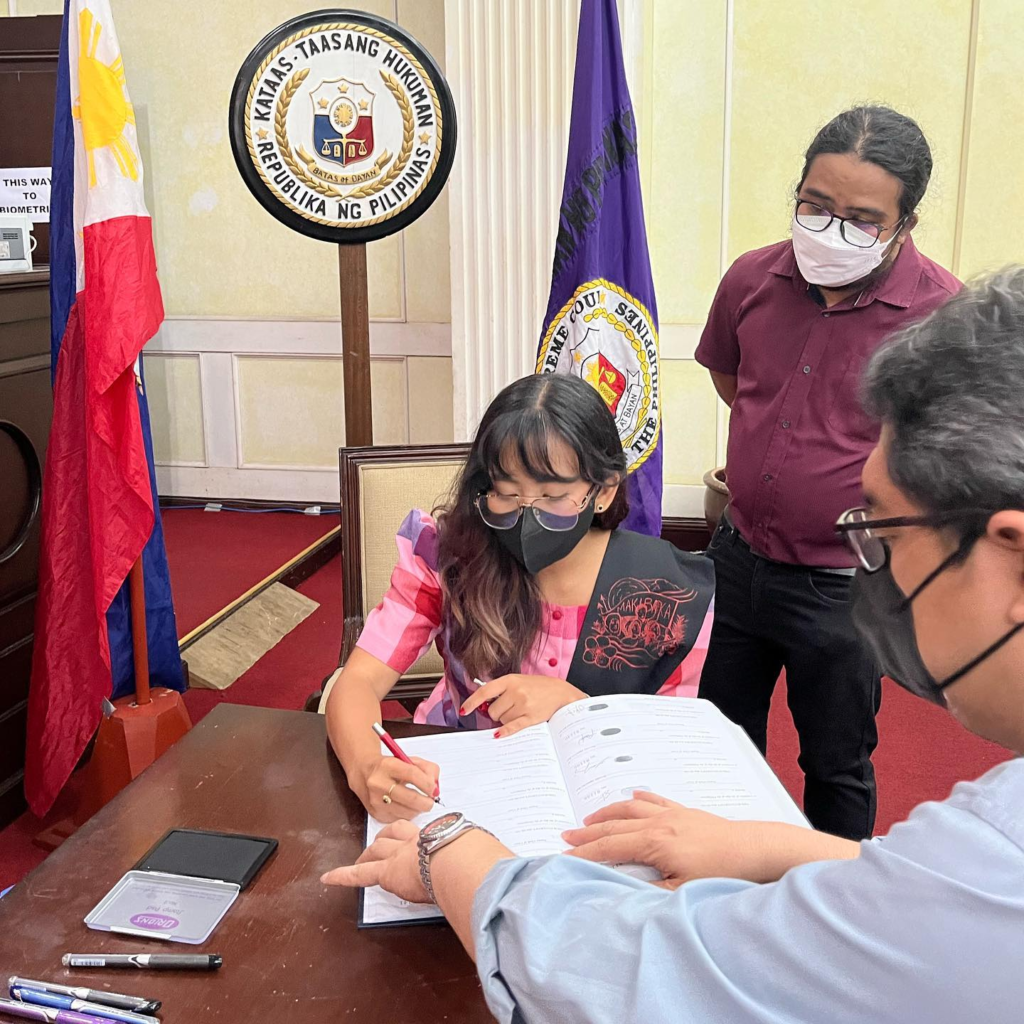
YVC’s BOT Member joins IATT’s “Spill the T Webinar: International Women’s Day 2023 Edition”
By YVC Secretariat | Speech by: Atty. Rea Guiloreza | Thursday, March 9, 2023
Every year in March, the world commemorates International Women’s Day and this year, the theme set by the United Nations (UN) is “DigitALL: Innovation and technology for gender equality”. This theme recognizes and celebrates the women and girls who are championing the advancement of transformative technology and digital education while aiming to explore the impact of the digital gender gap on widening economic and social inequalities. This has also provided an avenue to spotlight the importance of protecting the rights of women and girls in digital spaces and addressing online and ICT-facilitated gender-based violence.
Youth Voices Count, Inc. (YVC) commemorates and celebrates women in all their diversity this Women’s Month. We believe that women, regardless of sexual orientation, gender identity, and gender expression, must live in a world that is free from violence and abuse. Especially in this digital world, we should advocate not only for physical safe spaces, but also online safe spaces.
The Inter-Agency Task Team on Young Key Populations (IATT-YKP) organized this webinar with the objective of raising awareness regarding the relevance of the International Women’s Day theme to women in all their diversity, including young women from key populations. It also aims to engage new and multi-sectoral partners on cross-cutting issues such as gender equality, women’s empowerment, sexual and reproductive health rights, and human rights. The webinar was co-organized by UNAIDS Asia-Pacific, Youth LEAD, United Nations Development Programme (UNDP) in Asia and the Pacific, and YPEER Asia Pacific Center. It was hosted by Honey Lyster of UNDP in Asia and the Pacific.
YVC’s Board of Trustees (BOT) Member, Rea Guiloreza, a human rights lawyer with the National Union of Peoples’ Lawyers (NUPL), joined the online panel on “Women and girls in all diversity & technology”. Rea completed her Juris Doctor (JD) degree (Law Degree) from Central Philippine University and recently passed the 2020-2021 Philippine Bar Examinations.
At present, she is a part of the National Union of Peoples’ Lawyers (NUPL) – Panay Chapter where she serves as the Vice Chairperson. They are a group of lawyers who are committed to defend, protect, and promote human rights, especially of the poor and the oppressed. NUPL is an organization established to respond to any form of harassment, intimidation, and human rights violations in the Philippines. She joined YVC’s Board of Trustees in February, 2023.
At the “Spill the T” webinar, Rea was asked to answer the following question: “How do young women and girls in all their diversity use technology to benefit and empower their community, particularly related to HIV/SRHR and related issues?”
We share with you the full speech delivered by Rea during the “Spill the T” webinar.
In an archipelagic country like the Philippines, technology has been a very powerful tool to bridge young women and girls from different ethnic groups across all 7,107 islands. Technology has helped raise the consciousness of the young women, millennials and Gen Zs, and educated many about themselves, their health, and their rights. And we’re grateful for domestic laws which encourage, promote use of technology and protect our rights in the digital space.
We have laws on Data Privacy and against Cybercrimes. We have the Safe Spaces Act which protects us from gender-based sexual harassment in public places including online. However, both technology and the laws on technology are double-edged swords. And these have been used by the State to curtail our civil and political rights. The Cybercrime Law which increased the punishment of crimes, likewise imposed a higher penalty for Libel and it is now used by the State to suppress freedom of the press and journalists, like Nobel Peace laureate Maria Ressa.
We have a law to provide Free Public WiFi internet that would really benefit and empower young women and girls in education, access to information, and community development; however, despite having been passed into law two Presidents ago, this has yet to be fully implemented.
Worse, given the political situation in the Philippines, it could be a tool for surveillance of human rights activists. This threat of surveillance is also a cause of alarm, in view of a recently passed law mandating the registration of our Sim cards and mobile numbers.
This fear of surveillance is not unfounded. For decades, our government has been waging a crackdown on dissent.
Anyone who criticizes the government about anything (inflation, transportation, land reform) are immediately “red-tagged”—a tactic where you are harassed and called a “terrorist” for
merely expressing grievance.
This poses a challenge for young girls and women who push for the advancement of sexual and reproductive health and rights, even the development of our civil rights like marriage equality.
With the rise of social media, our government likewise doubled the attacks.
A few years ago, we had a female Representative of the youth sector who was also a member of the minority in our Congress. Because she has been very vocal in pushing for progressive legislation and in opposing anti-democratic moves of the Government, she was constantly red-tagged by the state and its trolls, targeted with black propaganda, and labeling her as a terrorist and destabilizer.
I personally had a photo with her and other women/LGBTQ activists from my island. She posted the photo on her Instagram account, and this was used by an “anonymous” Facebook page to call us and I quote, “fake activists”, “terrorists”, and “recruiters of the Communist Party of the Philippines New People’s Army”.
The Philippine government intentionally and maliciously blurs the line between street activists and armed insurgents. This is alarming because digital and offline black propaganda is usually followed by physical harassment by State Agents, then trumped-up judicial charges and worst: death.
Currently, there are about 160 women political prisoners, out of almost 800 political prisoners detained. While it may look like a small percentage, it looks like it will rise. In my island alone,
last year, most cases of political arrests always targeted at least one woman.
Our digital world only reflects the real world. Carving an online safe space in our advocacy for our health and rights, goes hand-in- hand with actively protecting our fundamental rights and our spaces offline.
It will be challenging but throughout Philippine history, women have always been at the forefront of the struggles of the Filipino masses against colonizers, tyrants, and dictators.
And so I believe that we will succeed.
As we say here, “Babae ka, Hindi Babae Lang” (You are not just a woman, YOU ARE A WOMAN!)
Share post





